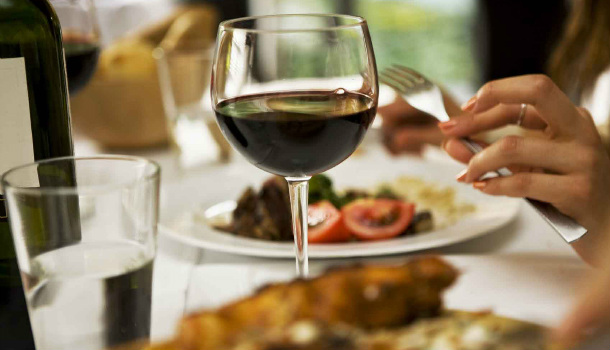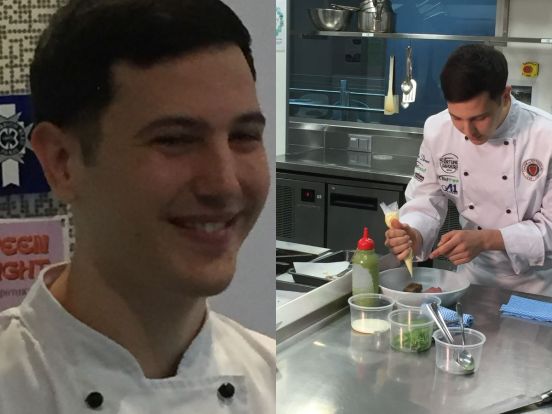In today’s fast-paced hospitality industry it’s incredible to see operators taking short cuts. Supermarket pizza bases, pre-made pies, microwave food – products that owners want to build their brand and reputation on – brought in and sold to customers.
We also often see no real plan, or a plan to be average and cheapen down a brand, with things such as cut-price equipment, limited research, lack of innovation and limited or no new technology. But it is excuses that are really killing hospitality – they’ve become usable currency in so many of today’s businesses and that leads to a huge de-valuation of their product and the service.
Around eight years ago we started writing our first Brand Architecture program, which contained ten standard questions that we asked the industry about their performance. We also created staff development programs, venue audits and venue opening processes. But the standard ten questions which have formed the basis of our hospitality training are still not being embraced by many operators in the market that are in trouble.
Below are the standard brand questions we use every time we design a new brand – a restaurant, bar or nightclub – and we recommend all our clients look at these before they do anything else. I would love to hear your answers on some of these too:
Top ten questions of change:
1. What is our brand promise and how do we communicate to the customer?
2. What are we famous for? How will we challenge both new and old customers?
3. Customer loyalty: what can we do to reward loyalty among our customers and do we have enough ‘face to face’ communication?
4. Staff loyalty is so important today: what can we do to reward our team’s loyalty?
5. Hospitality is a stressful business: what can we do better to help our team chill out?
6. Think about: being the mayor of the village, creating community partners, working in with local businesses and joining community organisations.
7. Recruiting and retaining staff is tough: how will we find new team members?
8. Early trade is tough: what can we do better to draw an early crowd?
9. Food is so important to our business: what changes can we make to our menu?
10. How has our customer changed in the last two years? Have we even enquired?
Next, let’s look at your team:
The value of effective employee incentives is significant. In team development, the most under-utilised resource is recognition and spontaneous recognition is what’s missing most. Just a general, caring ‘thank you’ goes a long way. And keep in mind, employee recognition and employee incentives are very different.
Experience certificates are the new incentives trends. Instead of gift certificates, reward performers with ski school vouchers, lessons at golf schools, cooking lessons, backpacking excursions, race car driving sessions, or vouchers for whatever your employees passion might be.
What about King for a Day? “Today is YOUR DAY!” Choose a team member and make them king for a day. Lunch and dinner with the boss, a day off to learn something new. We’ve even had a mentor day where they get to ride shotgun with a top performing chef or consultant.
Reward employees seven days a week. How about surprising your top workers by sending them a different reward every day for seven straight days.
Now it’s time to ask some marketing questions:
There are four types of marketing that are a necessity for any hospitality venue:
- Preventative marketing: first, keep the customers you have, and do a S.W.O.T analysis, looking at your Strengths, Weaknesses, Opportunities and Threats
- Partnership Marketing: align with complementary businesses, clubs and associations
- External marketing: this is what we normally do to get customers, from advertising through to viral campaigns
- Internal marketing: this is what retains our customers and slows their stay times. 4 walls Marketing improves table service, sales, and increases positive word of mouth.
Getting the message to the market is another huge area where New Zealand hospitality misses the chance to drive sales.
Keys to great in-house, full-motion digital marketing
First, the message must be real, truthful and genuine. If you promise a burger with a fresh made pattie, then present the premade, frozen product, you will lose out.
Messages are vital. They must be short, and may not even contain words, just simply images. Messages need to challenge the customer and produce a call to action.
Your moving digital message today can be the top of its game. It needs to be full high definition and the same high quality as your biggest competitors. Your advertising needs to tell your story and connect with your customers. It must excite and cause a reaction and if you can prove a great Point of difference, you’ve got it.
Digital messages can be clever, inspire rituals, and contain offers – daily, weekly and monthly. Rituals make money, change habits, and build loyalty. Link rituals that drive early-week sales with your multimedia, especially Facebook, and you’re in clover.
Here are some great multimedia techniques:
- Visual Opportunity: this is probably the most important learning for your team. Encourage them to look for opportunities to take photos: any chance to offer to take a photo of a group means great images taken at your venue get straight on to Facebook.
- Strategy: Great strategy is about being more intentional with your social media and creating a plan for success. It’s easy to come up with a multitude of ideas for blogs and Pinterest posts, but you MUST plan and a multimedia plan should be part of any new business plan.
- Tell a Story: Social media tools were intended to create connections with other people. Instead of pushing out information, turn your approach around and share stories that resonate with the people you want to connect with.
We know thousands of New Zealand hospitality venues are trading with substantial yearly losses and some are heavily in debt. It’s time for us to lift the level, Raise the Bar if you will. In New Zealand, we have new rules and legislation to deal with, so it’s time to change, re-develop, and get better across the board.
It’s a waste of time being angry or whining about change. Just get on and be first to understand it and use it to help. Today is about great teams, great technology, and having a point of difference in our product ranges.
If Wikipedia was a book, it would be 2.25 million pages. But how many people know it’s one of the best search engines for bar promotions, and great for filling in gaps in your bar’s calendar of events? You might just need to change the way you think, and embrace new ways.
Since the economic downturn, the fast casual segment has led the hospitality industry resurgence. Understanding today’s trends is also paramount, and research and success are great partners.
Fast Causal is one of the fastest growing elements, and it’s re-developing and building new concepts. It’s important to know that numbers can change the way you think about your business, and the way you look forward. And it’s time to change the way we view our businesses.
Here’s a final Top 10 for all hospitality owners today:
- The customer often feels lost, so how lost are they? The most talked about feeling right now is customers want to be welcomed and made to feel special; sold to, and looked after all the way through their visit.
- Customers often ask why so many staff members have terrible product knowledge, and then spend time asking someone else for the answers throughout their visit?
- Repeat visits need to be marketed, but often customers aren’t asked how their experience was. There’s often no repeat offer, not even a ‘thanks for coming’ or ‘see you again soon.’
- Show your team you care, with spontaneous recognition. As an industry, we need to get better at finding good things to say about our teams.
- Identify ‘time robbers’ among your processes. One thing I do in every single bar re-development for my clients, is set rules and monitor people and processes that rob valuable time.
- Carefully identify your ‘superstars’. Work out what you love about them and find more people with the same skills.
- Keep your venues clean! The main key to marketing is cleaning. Before you spend money on marketing, review the quality of your cleaning.
- Remember the Five Foot Rule: within five feet of someone, you should acknowledge them verbally. This is one of the often forgotten keys in staff training.
- Remember the Grandma Rule: keep your cool.
- Get the right people in the right place on the bus. Hospitality is often referred to as a bus, so think about who’s driving yours and who needs to get off. Stop paying staff to drive away your customers.
New Zealand hospitality is in great shape for those in the industry who have planned well, done their research, and developed excellent offerings to suit a market.
The businesses that are going to lead the market have picked up new technology and used great innovation. Most of all, they are training and developing great people and building great teams, because no one can do this alone.
Here’s to change!
By Tony Wheeler
Raising the Bar Consulting









